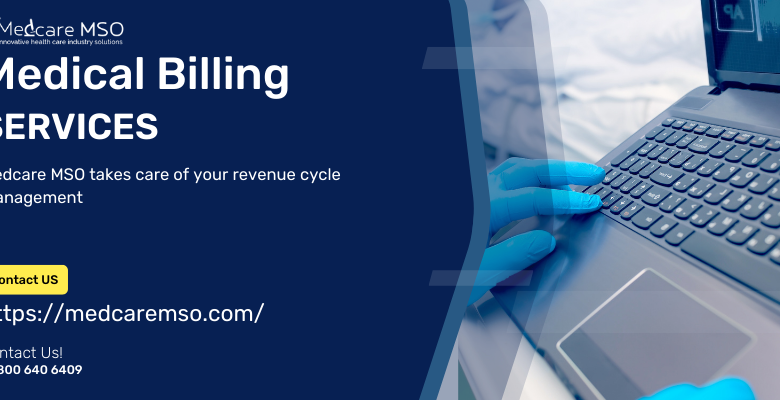Healthcare Medical Billing | Importance Of Medical Audit

The medical audit is a systematic, thorough hospitalist medical billing on the standard of treatment that includes the methods used to diagnose and treat as well as the use of resources, as well as the resultant outcomes in terms of quality and life quality of patient patient’.The medical audit follows a constant process that involves observing practices as well as setting standards and the comparison of practice to guidelines, making changes, and then observing the new procedure. Healthcare Medical Billing procedures that are meaningful must be completed in this sequence.
Healthcare Medical Billing

Improve Patient Care
The primary goal of an audit is to improve the quality of patient treatment, such as by reducing the need for unnecessary treatments and procedures, and stopping iatrogenic illness and finding patients suffering from ongoing problems who haven’t been followed up. This can be accomplished by an agreement on the treatment for common ailments as well as the adoption of standard guidelines as well as regular audits of the departments’ work.
Reviews can determine whether the diagnoses and treatments are suitable and can identify problems which could have been prevented. The ideal is that each unit’s performance must be evaluated against accepted standards that include relevant aspects such as the characteristics of the populace, the mix of cases and the provision of regionally unrecognized services, as well as the constraints placed on the provision of services.
Analyzing and comparing the performance of units using standards that are accepted such as performance indicators, outcomes parameters can be an important source of information to identify areas for improvement and improve the quality of care for patients. The main goal of an audit process is better practices in clinical practice, which leads to better outcomes for patients.
Improving Communications
A lot of complaints from the public are based on poor communication. Inadequate notes and inadequate discussions with patients are recognized as issues and are a significant cause of complaints that go to the courts. Audits have revealed how the communication with patients is helped by the creation of documents for hospital staff in junior positions and printed informational leaflets as well as the process of ensuring the record of details given to patients.
Communication with doctors can be made easier by the creation of a quick discharge summary. Certain audit systems generate regular summaries as a result of data entry. Other systems monitor the time delay for writing letters. It is also possible to monitor the delay in sending letters. Audit has also discovered the importance of the criteria for referrals to patients to general practitioners, which is cutting down on the work of outpatient clinics. The quality of the notes will help the transfer of the information to nurses and doctors who visit patients while they are on call.
Professional Development
The audit could be a method of learning and formal audits are becoming increasingly considered an integral part of the training process in clinical skills. Consultants play an important part in the postgraduate education of medical students. The training programs that are based on learning through apprenticeship are frequently ineffective and the pressure is increasing to regularly assess both the trainer and the trainee.
Audits can be an essential contribution to the process and will likely be an essential requirement to be recognized for training positions. The audit allows surgical professionals to take advantage of peer reviews and feedback. This is so that they will be able to remain confident in their skills as practitioners. The analysis of a case study clearly outlines what happened to patients being admitted for treatment.
The potential issues are identified and alternative strategies can be discussed. Surgeons need to know the nature of their practice and performance, and therefore changes can be made to enhance their professional development and provide better services to the public.
Organizational Improvement
The audit of clinical practice provides an opportunity to validate established procedures that produce anticipated outcomes, but , more importantly, it can identify potential areas for improvement within a company. It is the process of recording basic data regarding the daily activities of the clinical practice to examine the situation, spot difficulties, make changes, and then monitor improvements in outcomes for patients. In the current environment of limited resources, the possibility to increase the efficiency of cost-effectiveness is appealing.
Ineffective healthcare is, by definition costly, and it also blocks the provision of additional services. The Audit will highlight areas that can yield cost savings, without impacting the quality of care for patients. For instance, guidelines could be to use investigations to determine the early signs of disease, standard guidelines on consumables and drugs as well as the reduction of the length of stay through the reduction of complications.
There are many ways to conduct an audit. The growing availability of computers allows numerous people to examine information. There is a requirement for data sources to be created in a format that data can easily be downloaded. For hospital data, this can be accomplished through direct communication systems. Other information may be accessible via compact discs. In order for the audit to be successful, it will require the total support of management.
This means that the doctors and managers have to agree that the primary goal of the audit is to improve the patient experience rather than to cut expenses, regardless of the quality of care. Also, there must be the understanding that an audit is time-consuming, and be free for other tasks and will need sufficient clerical support.




